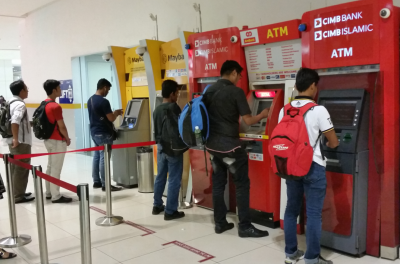Opportunities in cross-border real estate investment
The Covid-19 pandemic, which has caused many countries to shut their borders and impose travel bans, has inevitably affected property market activities on both the domestic and international fronts. CBRE | WTW group managing director Foo Gee Jen says that although enquiries on the ground are still coming in, the number of transactions that will be concluded in the coming quarters remains to be seen, as many are in wait-and-see mode. JLL Property Services (M) Sdn Bhd country head YY Lau similarly observes a growing rise in cross-border capital flow throughout Asia-Pacific. Although Lau continues to observe interest from investors looking to put their money in Malaysia, she notes that the country can do more on a higher level in terms of reducing the risk of losing out to companies relocating to Southeast Asia. In terms of the residential property segment, Knight Frank Malaysia associate director of international project marketing Dominic Heaton-Watson has observed a release of pent-up demand in the surge of July and August transactions, with many taking advantage of UK developer incentives, stamp duty savings and new launches of developments with key transport catalysts — a favoured characteristic for investors. Investors are also more open to considering alternative sectors such as education, hospitals and data centres, which are perceived to be more defensive strategies. (The Edge)
Malaysian property market sees downtrend in asking prices
Malaysia’s property market is still dealing with the effects of the Covid-19 pandemic in the third quarter of 2020 (Q3 2020), said a property site. Its Malaysia Property Market Index (MPMI) report has revealed a downward trend in asking prices across all four key markets of Kuala Lumpur, Selangor, Penang and Johor. “Overall, property asking prices in Malaysia dropped by 1.34% this quarter; in contrast to the 0.38% increase in Q2 2020 and 0.63% increase in Q1 2020. For the first time this year, all key markets saw prices falling, indicating that this could be more than a quick dip,” it said in a statement. It believes that the implementation of the CMCO due to rising Covid-19 cases will impact current and future commercial activities, leading to a dampening effect on asking prices and the overall property market. According to the National Property Information Centre (Napic)’s Property Market Report for 1H 2020, asking prices may continue to take a dip in the months to come. “Despite these findings, there is a silver lining as it may unlock pent-up demand for millennials looking for affordable homes,” said the property portal’s country manager. (Malay Mail)
DBKL’s 97 ‘dubious land deals’ attributed to lack of SOP for sale, disposal of assets
The Public Accounts Committee (PAC) has found that the 97 purported dubious land deals under Kuala Lumpur City Hall (DBKL) were the result of a lack of clear standard operating procedures (SOP) for the sale and disposal of land assets since 2011. These were the findings of the PAC after a nearly year-long investigation into the land deals following numerous public complaints that DBKL assets were being sold off under questionable circumstances. PAC chairman Wong Kah Woh stated that the land sale and disposal process was only improved in 2015 after DBKL came up with a more detailed SOP. “The [previous] process was too loose, prone to abuse of power and did little to protect the interests of DBKL and Kuala Lumpur citizens,” said Wong. Furthermore, Wong stated that the Kuala Lumpur City Plan 2020 Draft that was approved by the Federal Territories minister differs from what was tabled to the public in 2008. (Malay Mail)
Top Glove: EMCO impacts 5,700 workers
Top Glove Corporation Bhd, whose share price fell to a two-month low of RM6.15 on Tuesday due to the imposition of the enhanced movement control order (EMCO), clarified the order impacts about 5,700 workers in Meru, Klang. In a statement, it said this represented about 27% of its total employees of 21,000. It said the number of workers thus affected were not 13,190 workers as reported. The 14-day EMCO came into effect on Tuesday and will be in place until Nov 30. Its factories in Meru, Klang continue to operate with reduced capacity and workers not under EMCO are working under strict SOPs. “The majority of the affected workers are asymptomatic and do not have symptoms like fever or any sickness, ” it said. (The Star Online)

AirAsia Japan files for bankruptcy due to travel slump
AirAsia Group Bhd said its 33% owned associate firm AirAsia Japan Co Ltd (AAJ) has filed for bankruptcy proceedings on Nov 17. AirAsia Japan had on Oct 5 announced its decision to cease operations. AirAsia said its associate firm was affected by the slump in travel induced by lockdown restrictions related to the coronavirus pandemic. “Total cost of investment in AirAsia Japanhas been fully written down,” AirAsia said in filing with Bursa Malaysia. The announcement came after AAJ announced last month that it would be ceasing operations on account of highly challenging operating conditions. Prior to that, AAJ which was established in July 2014 and owns three aircraft, was operating domestic and international flights from its base in Nagoya’s Chubu Centrair International Airport. (The Star Online)





